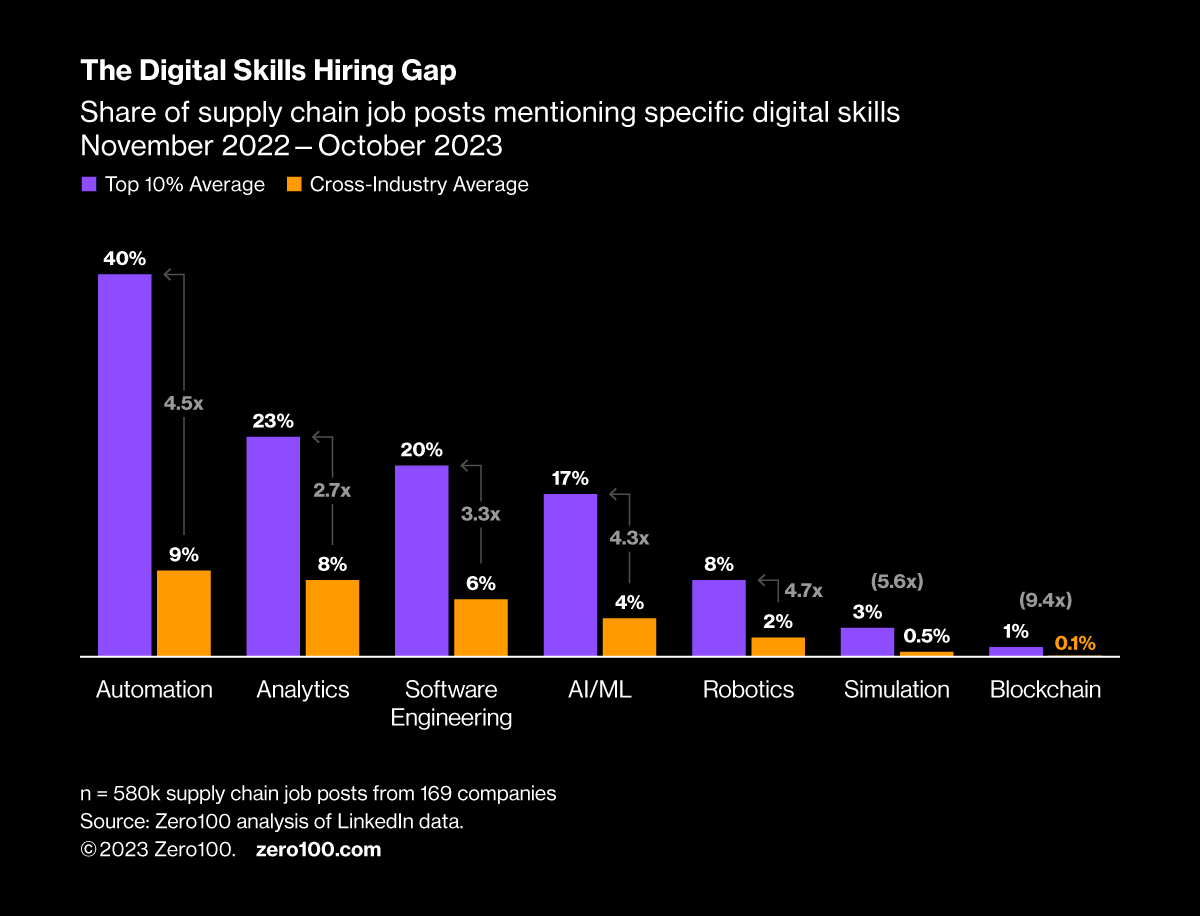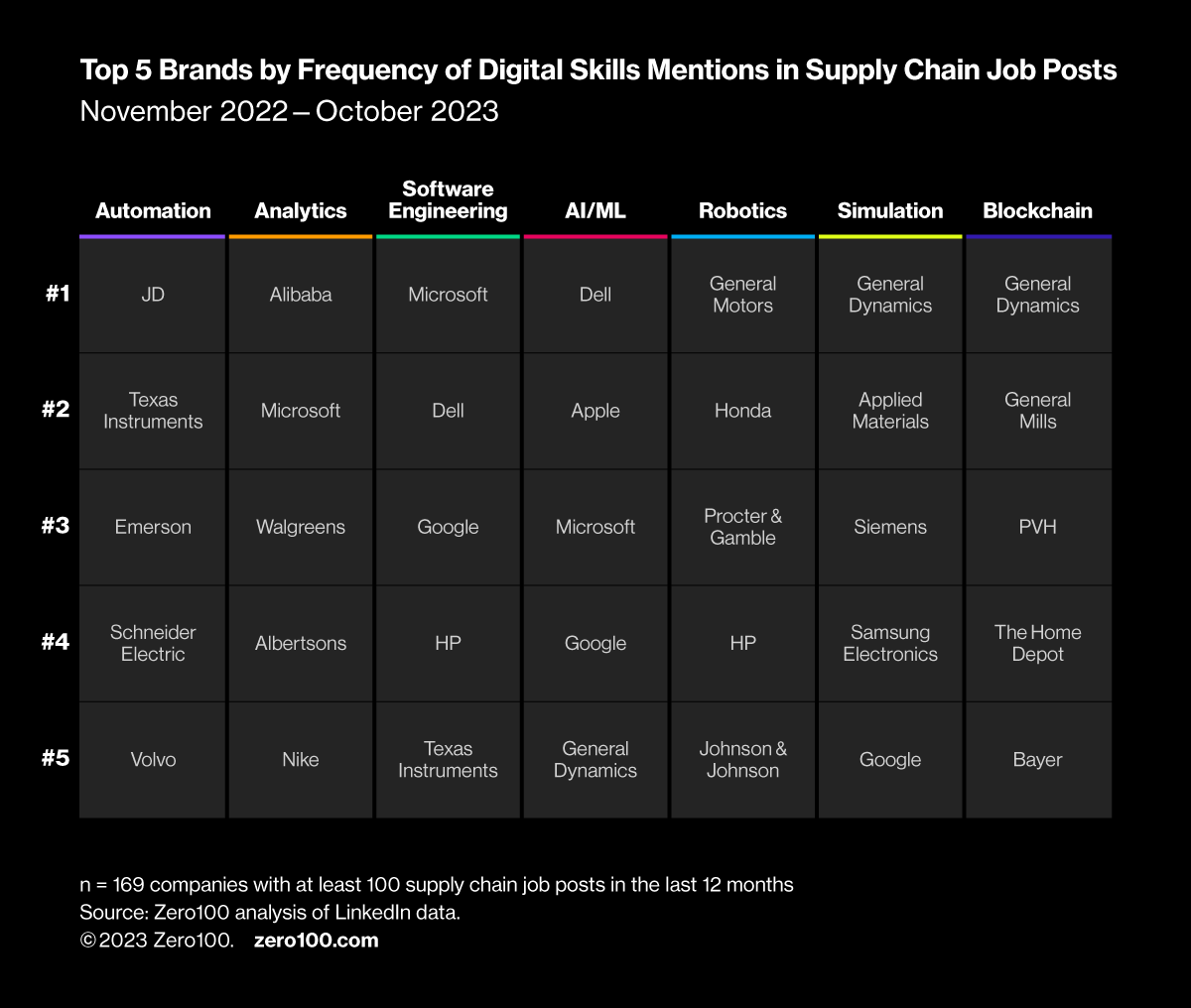

Year in Review: How Digital Leaders Hired in 2023
A successful supply chain – one powering business growth, resiliency, and sustainability – hinges on cultivating a versatile team proficient in various digital skills across supply chain functions. The crucial element of digital transformation lies in talent possessing a comprehensive set of digital skills, including simulation, software engineering, and blockchain, alongside AI/ML capabilities.
Key Takeaways
-
1
Overall, there’s a wide gulf between those hiring most aggressively for digital skills and supply chain at large. Looking at AI/ML in particular, those leading the charge are hiring at 4.3x the rate of peers for this specific capability, while leaders focused on robotics hire at 4.7x the rate of their peers.
-
2
Tech companies have been hiring most aggressively for AI/ML and software engineering skills, while CPG companies, including P&G and J&J, have been leading when it comes to hiring for robotics skills, surfacing in the top five of the nearly 200 companies we track.
Seven Digital Skills for Supply Chain
There is no doubt that since the launch of ChatGPT in November 2022, AI/ML has emerged as the hottest topic in business. But what’s the right mix of digital skills beyond AI?
Before AI was at the top of everyone’s digital checklist, capabilities including simulation, software engineering, and blockchain were the ones to watch in supply chain. One of the earliest simulation implementations came from Microsoft, who started steadily investing in a digital twin simulator in 2019 and, by 2022, had developed a digital twin model that could simulate supply-demand options and implications daily. In 2019, PUMA implemented software engineering solutions, building a custom PLM system to improve product development and launch. Also in 2019, Nestlé became the first major F&B company to pilot an open blockchain solution to trace the source of coffee from farm to table.
Not only do these skills serve vital roles across The Loop, they also support AI/ML experimentation. This is supported by a 2023 Zero100 survey, which found that planners making smart use of AI/ML and digital twin simulation in their integrated planning processes are 8x more likely to secure a seat at the boardroom table.
In our analysis, we found that where the laggards of the group failed to prioritize blockchain, simulation, robotics, automation, and AI/ML talent leaders hopped on these opportunity areas early. When looking at the top 10% of companies (those with the highest percentage of job posts mentioning digital skills) in our data set, two of five job posts mention automation, indicating that automated processes play an important role across a variety of functions in the supply chain loop. If we look at the top five companies, nearly three of four jobs mention automation. A smaller gap between digital leaders and laggards when looking at job posts mentioning software engineering and analytics skills indicates that these skills have become table stakes and are significantly more prevalent in supply chain jobs.

Unsurprisingly, tech companies lead the way in software engineering and AI/ML hiring within supply chain. Looking at the tech companies that fall within the top five when it comes to hiring for digital skills, we found one in three job posts mentions AI/ML skills, demonstrating the rapid deployment of these tools across the supply chain. While auto companies are at the top of the robotics list, P&G and J&J have also found a place in the top five – demonstrating that they, too, are capitalizing on the value of robotics within their supply chain and operations.
Blockchain, the least adopted skill, has the most diverse mix of industries represented in the leader list, with the top five showing that this is a nascent technology that companies are still figuring out how to incorporate. Sourcing is a key opportunity area here – in researching digital threads, we found that organizations, including Porsche, Adidas, Aveda, and Danone are leveraging blockchain solutions to improve material traceability.

Recruiting for these skills isn’t a simple task. To start, review your arsenal of digital skills across The Loop to isolate gaps. Once you’ve identified these, look at what peers within your industry are doing – assess job descriptions and consider your hiring level in comparison. An example of a unique hiring approach can be found when considering SC Johnson, who treat their job posts as an exercise in SEO. This means that what might be seen as “clunky” job titles are picked up quickly by people searching for a functional role and specialization. They further standardize duties and responsibilities by referencing digital skills between posts. Another avenue is to partner with your marketing team to share best practices and technologies in hiring. When putting this into practice and to also make the most of digital tools at your disposal, take into account ways to diversify talent and consider skills that complement each other alongside proficiency in specific areas.
Non-members can learn more about Zero100 talent case studies and diversification strategies for supply chain leaders in the preview of our Rewired 2023 Report. To access the full report or for more details, please email hello@zero100.com.
To see a different data cut or to dig deeper into this topic, reach out to our Head of Research Analytics, Cody Stack, at Cody.Stack@zero100.com.
Methodology
Zero100’s proprietary data and analytics are a combined effort between our data scientists and research analysts. We provide data-first insights matched with our own research-backed points of view and bring this analysis to life via real-world case examples being led by supply chain practitioners today.
For this study, we looked at 2.4 million LinkedIn job posts from 100 B2C companies. Our analysis categorizes listings based on mentions of specific digital skills within job titles and descriptions.